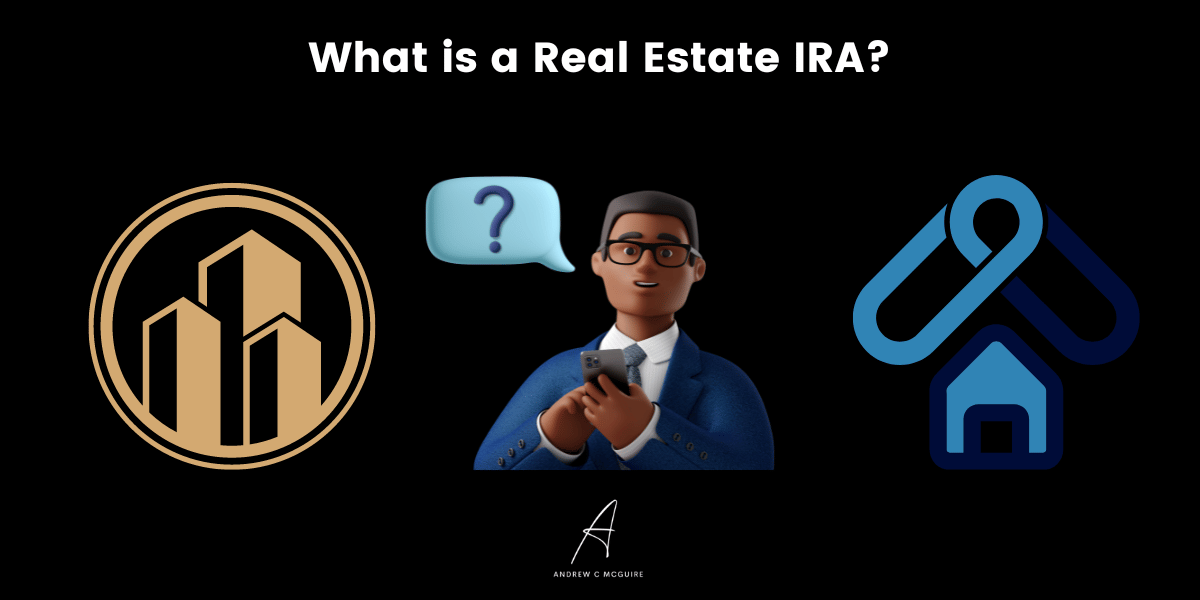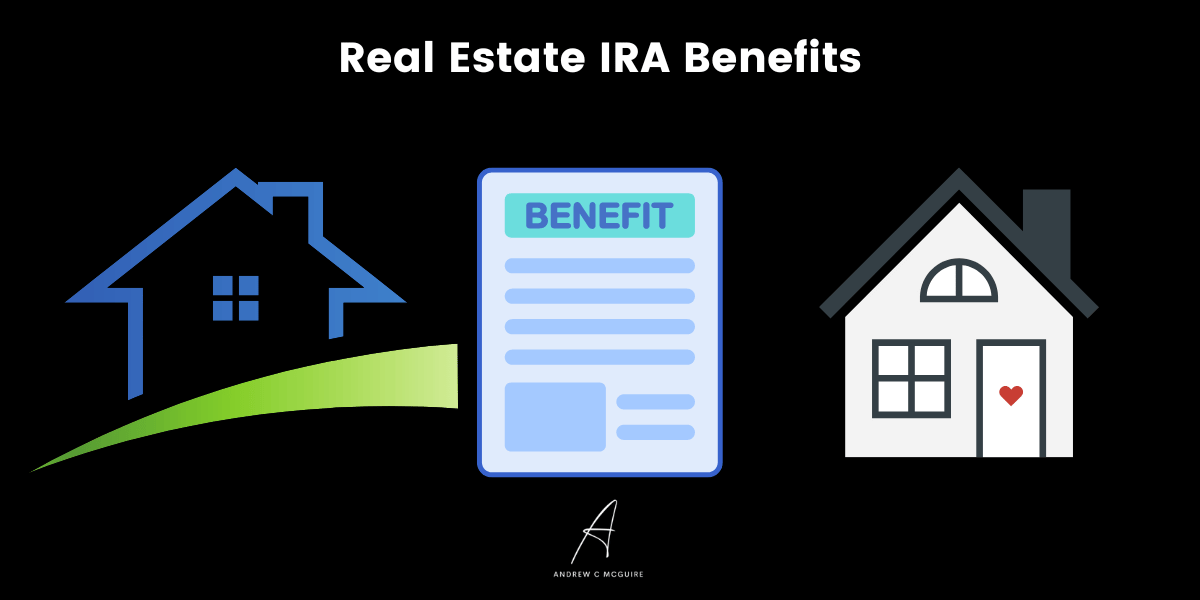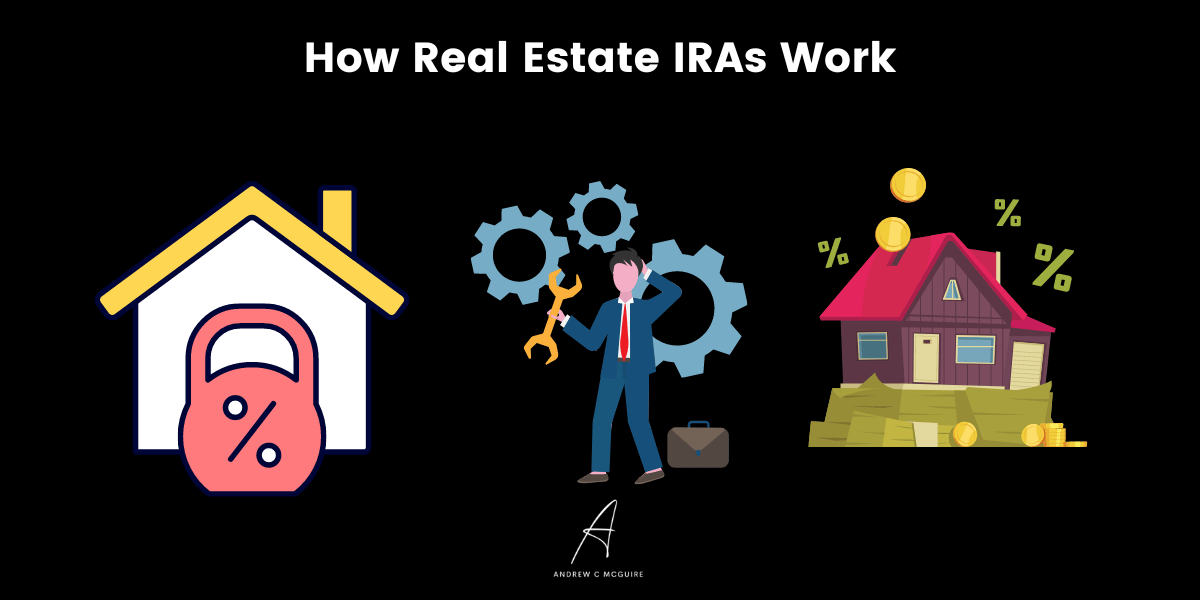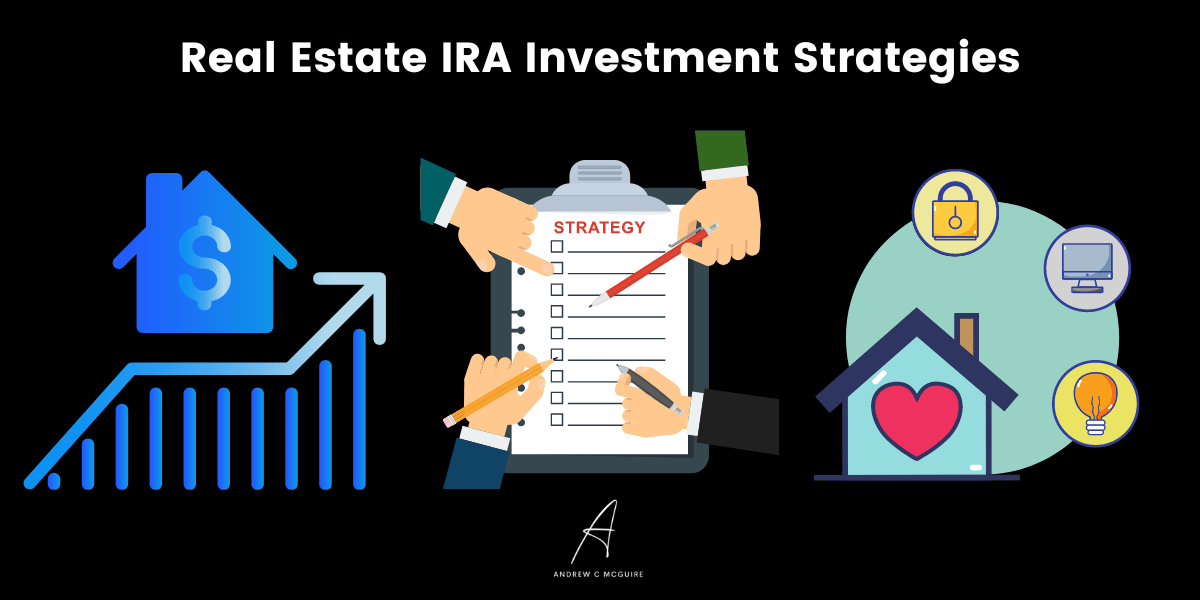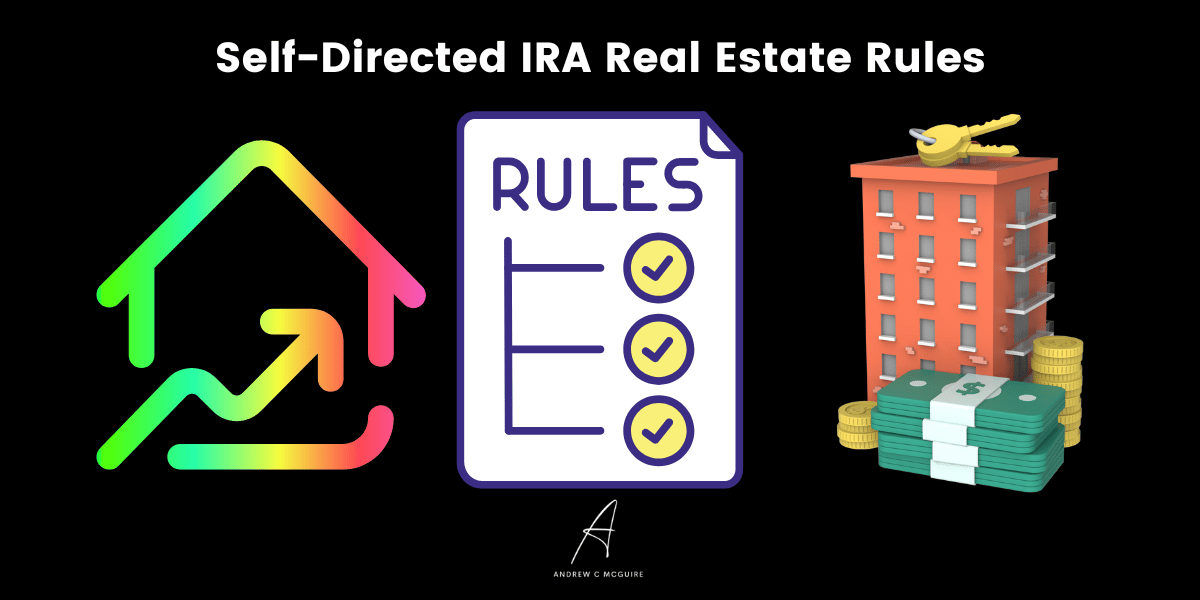Post-retirement life is one of the most critical moments in anyone’s life. This is why you cannot just leave your finances to chance. Investing in self-directed IRA real estate is one of the things you can do to protect your wealth from the effects of recession and inflation while growing the money at the same time. Another great investment option is the precious metals IRA. And with it comes to gold and other precious metals investment, Augusta Precious Metals is the #1 investment company out there.
- Money magazine’s “Best Overall” Gold IRA Company in 2022
- Quarterback Joe Montana and his financial team chose Augusta
- Zero fees for up to 10 years — every customer qualifies
- Investopedia’s “Most Transparent” Gold IRA Company in 2022
- Free guides on how to avoid gimmicks & high-pressure tactics used by gold IRA companies
We earn a commission if you make a purchase, at no additional cost to you.
Investing in real estate is central among the most popular and effective ways to protect your wealth from inflation and a recession. Self-directed IRAs are increasingly becoming an attractive option for those looking to diversify their investments, as they offer greater control over how funds are invested than traditional IRA accounts. In this blog post, we’ll discuss what self-directed IRA real estate is, its benefits, how it works, and investment strategies you can use with these types of accounts. We’ll also look at the rules surrounding self-directed IRAs when it comes to investing in real estate and explain why choosing a reputable IRA real estate company may be beneficial for investors who want more flexibility when managing their portfolios. But before we dive into the core of the IRA, check out what quarterback Joe Montana says about Augusta Precious Metals and why his financial team considered the reputable gold and other precious metals IRA dealer as the perfect retirement investment firm for anyone.
[presto_player id=4770]
What is a Real Estate IRA?
A Real Estate IRA is an individual retirement account (IRA) that allows investors to purchase real estate investments with their retirement funds. This type of IRA offers tax advantages and the potential for higher returns than traditional IRAs. With a Real Estate IRA, you can use your retirement savings to invest in residential or commercial properties such as single-family homes, multi-family dwellings, apartment buildings, office buildings, and more.
Real Estate IRAs offer several benefits over other types of investment accounts. For example, the money invested in a Real Estate IRA grows tax-deferred until it’s withdrawn at retirement age; this means that all profits are not subject to taxes until they are taken out of the account. Additionally, when investing through a self-directed Real Estate IRA you have control over which investments you make and when—allowing you to tailor your portfolio according to your own goals and risk tolerance level.
When investing through a self-directed Real Estate IRA there are several strategies available depending on what kind of investor you are: long-term buy & hold strategy; flipping houses; lease options; private lending; land banking; etc. Each strategy has its own unique risks and rewards so it’s important to research each one thoroughly before making any decisions about how best to utilize your funds within this type of investment vehicle.
Finally, since most states require landlords to carry insurance policies on their rental properties it is important that investors understand these requirements prior to opening up a Self Directed Retirement Account dedicated solely towards real estate investments. Failure to adhere could result in costly fines or even loss of ownership rights should something go wrong down the line.
A Real Estate IRA is an excellent way to diversify your retirement portfolio and maximise of the potential for long-term wealth generation. By understanding the benefits associated with a Real Estate IRA, you can determine if this type of investment strategy is right for you.
Key Takeaway:
A Real Estate IRA offers tax advantages and the potential for higher returns than traditional IRAs. Benefits include the growth of money tax-deferred until retirement, control over investments, and various strategies available depending on investor goals and risk tolerance. It is important to understand state insurance requirements prior to investing in order to avoid costly fines or loss of ownership rights.
Real Estate IRA Benefits
Real Estate IRAs offer several benefits to investors looking for means to protect their wealth from inflation and a recession. One of the primary advantages is tax-deferred growth. By investing in real estate through an IRA, you can defer taxes on any gains until retirement age, allowing your investments to grow without being taxed along the way.
Another benefit of Real Estate IRAs is the diversification of investments. With traditional stocks and bonds, there are only so many options available for investment; however, with a Real Estate IRA, you have access to a much wider range of assets including residential properties, commercial buildings, land, and more. This provides investors with greater flexibility when it comes to creating an optimal portfolio that meets their individual needs and goals.
Real Estate IRAs also provide the potential for higher returns than traditional IRAs due to leverage opportunities such as mortgages or lines of credit which allow investors to purchase larger properties than they would otherwise be able to afford outright. Additionally, rental income generated by these properties can further increase returns while providing additional cash flow during retirement years.
Finally, one major advantage offered by Real Estate IRAs is that they allow investors the opportunity to use their retirement funds without incurring taxes or penalties associated with early withdrawals from other types of accounts such as 401(k)s or Traditional IRAs. This makes them particularly attractive for those who want access to their money before reaching retirement age but don’t want the hefty fees associated with withdrawing from other accounts too soon.
Real Estate IRAs offer a unique way to diversify your retirement portfolio and generate passive income, allowing you to protect your wealth from inflation and recession. Next, we’ll discuss how Real Estate IRAs work.
Key Takeaway:
Real Estate IRAs offer several advantages for investors, such as tax-deferred growth, diversification of investments, the potential for higher returns, and access to retirement funds without incurring taxes or penalties.
How Real Estate IRAs Work
Real Estate IRAs are self-directed accounts that allow investors to purchase real estate investments with their retirement funds. Investors must open a self-directed IRA account with a custodian who specializes in these types of accounts. The custodian will then facilitate the purchase of real estate investments on behalf of the investor.
The process begins by selecting an appropriate custodian for your Real Estate IRA and completing all necessary paperwork, including setting up funding for the account. Once this is done, you can begin investing in real estate through your Real Estate IRA. You can invest in any kind of property – residential or commercial – as long as it meets certain criteria set forth by the IRS and other governing bodies such as state laws.
When making an investment through a Real Estate IRA, you must be aware that there are certain restrictions imposed by law on what type of properties you may own within your account and how they may be used or managed once purchased. For example, rental income generated from properties owned within a Real Estate IRA cannot be used to pay expenses associated with managing those same properties; instead, those expenses must come out of pocket or from another source outside the account itself. Additionally, no personal use whatsoever is allowed when it comes to any property held within a Real Estate IRA; if found guilty of doing so, investors could face severe penalties from both federal and state authorities.
In terms of taxes related to profits made through investments in a Real Estate IRA (such as capital gains), taxes will not need to be paid until distributions are taken out upon retirement age (59 ½). This makes them attractive options for investors looking to save money on taxes now while still taking advantage of potential returns down the road when they’re ready to retire.
Real estate IRAs can provide a great way to diversify your portfolio and safeguard your wealth from inflation and recession, but it is important to understand the strategies for investing in them before you begin. Next, we’ll look at some real estate IRA investment strategies.
Real Estate IRA Investment Strategies
Real Estate IRA Investment Strategies is a great way to diversify your retirement portfolio and safeguard your wealth from inflation and recession. There are several strategies you can use when investing in real estate through an IRA, each with its own risks and rewards.
One of the most popular strategies is purchasing rental properties. This involves purchasing a property, fixing it up if necessary, then renting it out for income. The benefit of this strategy is that you can generate passive income while also building equity in the property over time as rents increase or the value of the home appreciates. However, there are significant costs associated with owning rental properties such as maintenance expenses and tenant turnover costs that must be taken into account before making any decisions.
Another strategy is flipping houses which involves buying a fixer-upper at a discounted price, renovating it quickly to add value, then selling it for profit. This strategy requires more upfront capital than other methods but has the potential for higher returns if done correctly since investors often buy homes below market value and then sell them at a premium after renovations have been completed. It’s important to do thorough research on local markets before attempting this type of investment so you know what types of projects will yield high returns in your area.
Having your investments in REITs, Real Estate Investment Trusts, is another option available through Real Estate IRAs which allows investors to invest in large commercial real estate projects without having to purchase physical properties themselves. These investments typically pay dividends on a quarterly basis which makes them attractive options for those looking for steady income streams from their investments without having to manage tenants or deal with repairs like they would with traditional rental properties or flip house investments.
Real Estate IRA investments can be a great way to expand your portfolio and protect your wealth from inflation and recession. Now, let’s explore the rules of Self-Directed IRA Real Estate investing.
Key Takeaway:
Real Estate IRA Investment Strategies offer a variety of options to diversify and protect retirement portfolios, including purchasing rental properties, flipping houses, and investing in REITs. Each strategy has its own risks and rewards, so it’s important to do research before making any decisions.
Self-Directed IRA Real Estate Rules
When investing in real estate through an IRA, there are certain regulations that must be followed to remain compliant with IRS regulations. These rules include not using the property for personal use or benefit. This means that any income generated from the rental of a property held within an IRA cannot be used by you personally and must instead be reinvested into the account. Additionally, no transactions can take place between disqualified persons such as family members or close associates.
The IRS also prohibits certain types of investments within IRAs including life insurance contracts, collectibles (such as artwork), and alcohol-related businesses. Furthermore, self-dealing is prohibited which means that you cannot buy a property from yourself or another disqualified person nor can you sell it to them either directly or indirectly via a third party.
Finally, when setting up your Real Estate IRA it is important to choose an experienced custodian who understands all aspects of these accounts and their associated regulations. A qualified custodian will help ensure compliance with all applicable laws while providing guidance on investment strategies and other related topics so that you can make informed decisions about your retirement savings plan.
Self-Directed IRA Real Estate Rules are an important part of any retirement plan, and it is essential to understand them before making any investment decisions. Now let’s look at how to choose the right company for your real estate investments.
Choosing a Reputable Company as Your Real Estate IRA Custodian
When it comes to choosing a custodian for your real estate IRA, you want to find a tested and trusted company for yourself. The best company that specializes in self-directed IRAs should have extensive experience working with clients who are new to investing in real estate through an IRA. Their fees are competitive and they provide personalized service that helps you make informed decisions about your investments.
A good IRA real estate custodian understands the importance of diversifying your portfolio, so they offer a wide range of investment alternatives including stocks, bonds, mutual funds, ETFs, and precious metals such as gold and silver. They also provide access to alternative investments like private placements, venture capital funds, and limited partnerships.
The company’s team of experts can help you choose the right investments for your needs based on factors such as risk tolerance level, financial goals, and the timeline for achieving those goals. They will also help you understand how taxes work when investing through an IRA so that you can maximize returns while minimizing tax liabilities.
The best self-directed IRA real estate company makes sure that all transactions related to your account comply with IRS regulations so that there are no issues down the line due to noncompliance or errors made by their staff members. The company provides secure online access where you can view up-to-date information about your account at any time from anywhere with internet access – giving you complete control over your investments without having to worry about paperwork or delays associated with traditional banking methods.
Summary:
A reputable IRA company provides a secure, personalized service for self-directed IRA real estate investments. They offer a wide range of investment options including stocks, bonds, mutual funds, ETFs, and precious metals; provide access to alternative investments; and ensure compliance with IRS regulations.
Conclusion
In conclusion, self-directed IRAs offer a unique opportunity to invest in real estate and make use of the tax benefits associated with retirement accounts. Investing in real estate through an IRA can be an amazing way to diversify your portfolio and protect your wealth from inflation and recession. With careful planning, research, and guidance from professionals, you can create an effective investment strategy that will help you reach your financial goals.
FAQs
Andrew’s Gold IRA Pick
Augusta Precious Metals is the most trusted gold IRA company

